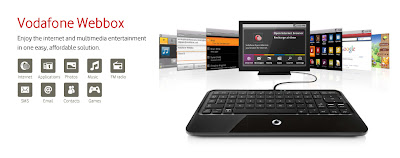INTERNET IN KENYA
It has been a while since I did real blogging. The funny thing is that I have had so much time to do what I can as a blogger but less inspiration. For starters I have this silly occurrence every time I am under pressure. I lose my brain hand co-ordination (need to play more video games). I could not spell a lot of words for the one two months hence been deemed as to lacking attention for details. AM good though, I still got my love and passion that I do think will keep me happy for long. Talking about my love and passion, let’s talk about I.T.
WE I all saw this coming or should I say I did see coming. Safaricom who I am very sure are the market leaders I Mobile internet in Kenya have had a clear and simple strategy all along. A. Be the trail blazers in 3G internet and maximize your return on investment where your main input is paying for the exorbitant CCK license, B. Bring in the low end/ entry level technology from the Chinese and use your financial muscle to deploy it. C. Experiment with entry level phones from the likes of Nokia, Huauwei, LG etc. and settle for one according to market reception. And Finally D. Use your elaborate distribution scheme to ensure proper distribution with the help marketing. This is quit ingenious given the fact that we have players such as Orange Kenya who have chosen to stick with high end cell phones such as I phones. Not that they are not a success but I guess it is not as loud as Safaricom’s but the economies of scale do rule in this times and age. Airtel seems to have spent sleepless nights rolling out its 3G network apart from changing names like P-DIDDY.
So, where does this the rest of the ISPs? I had a dream when the whole country could be as wired as South Korea or better yet Sweden and Japan. Ok, I guess I might have been too ambitious given the fact that this is the land of co-operate robbery and political abuse. We all saw the town being dug up and everyone could tell you that it was “fibre optics” being put in place and that meant faster internet access. The new rates by safaricom are however very commendable
To Activate the bundles;
Send an SMS from your Safaricom mobile number with the price of the bundle to code 450. For example, to purchase a bundle of 400MB, send 499 to 450
You will receive an SMS informing you of the status of activation of the bundle. You will be able to use the service once you receive an SMS informing you that the bundle has been activated
Weekly Bundles
a) Get a weekly bundle purchase valid for seven (7) days at KES 1,000/-
b) To activate, send an SMS with the price to code 450. In this case, send 1000 to 450
c) You will be able to access mobile internet services for a period of seven (7) days
Monthly Bundles
a) Get a monthly bundle valid for thirty (30) days at 3,000/-
b) To activate, send an SMS with the price to code 450. In this case, send 3000 to 450.
c) You will be able to access mobile internet services for a period of thirty (30) days
I would have done it the same way as safaricom has done except for the fact that I am not that kind of shrewd. The move has come just days before the Nokia report on the internet accessibility in Africa where Kenya is ranked amongst the poorest performers with only 5% internet penetration. So, what is the role of the Kenyan government coz according to the UNESCO Broadband Report 2011
Governments around the world need to rapidly formulate and implement national multi-sectoral broadband plans – or risk being seriously disadvantaged in today's increasingly high-speed digital environment. Ok, tell that to whom in Kenya? To optimize the benefits to society, broadband should be coordinated on a countrywide basis, promoting facilities-based competition and with policies encouraging service providers to offer access on fair market terms ... efforts should be coordinated across all sectors of industry, administration and the economy. Developing isolated projects or piecemeal, duplicated networks is not only inefficient, it delays provision of infrastructure that is becoming as crucial in the modern world as roads or electricity supplies," the report says.
For emerging economies and developing countries, wireless broadband looks likely to be the platform of choice, bringing services like micro-banking, telemedicine and fast sharing of information in local languages to communities, no matter how isolated. All this are evident in Kenya today where we hear of Equity Bank CEO talking of the mobile banking and a majority of banks are working in conjunction with service providers to make M-banking a reality.
I could go on and on about this but I guess you will be wise enough to contribute to this...



Comments
Post a Comment
Be sure to check back again because I do make every effort to reply to your comments here. Karibu :)